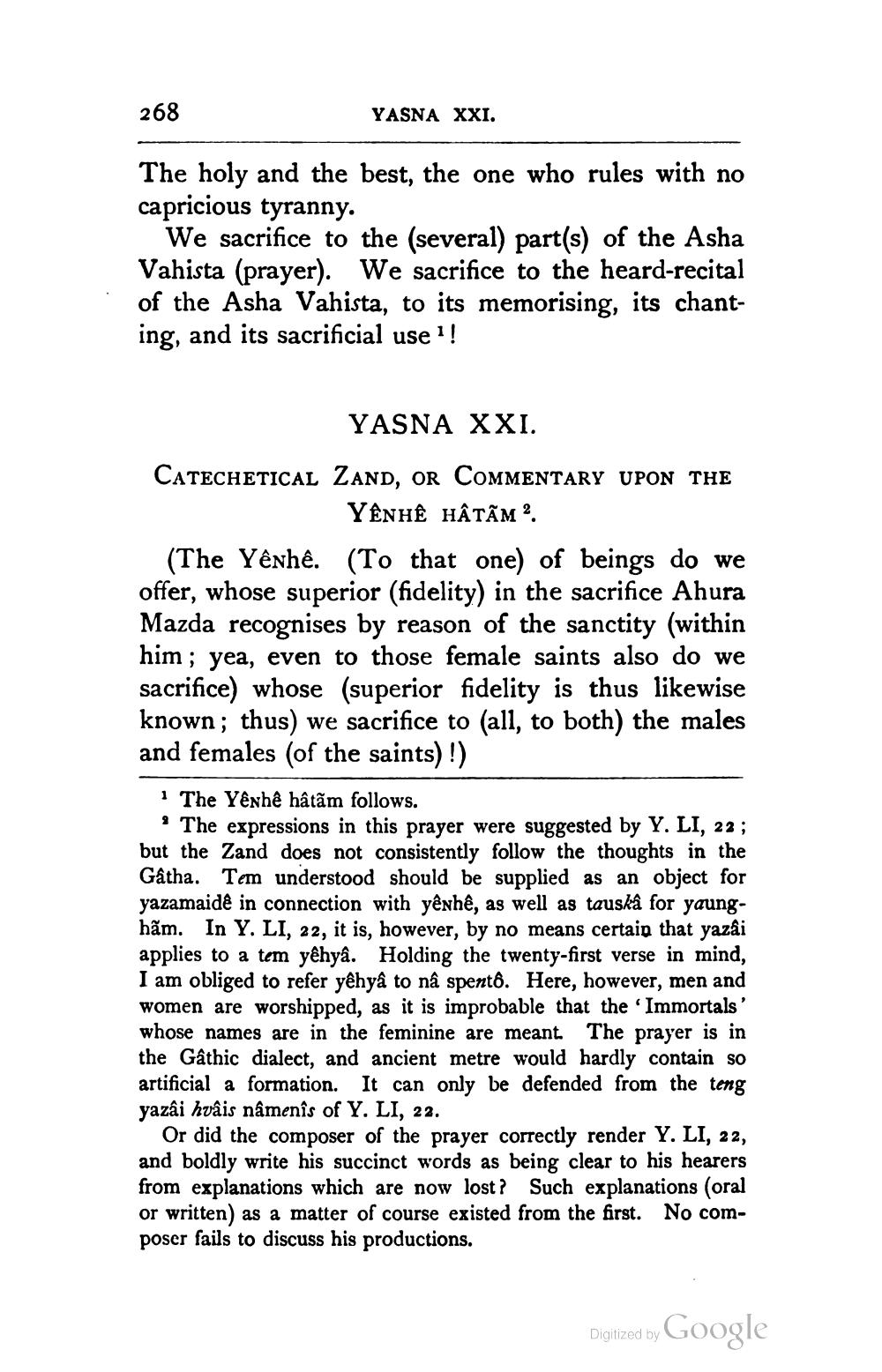________________
268
YASNA XXI.
The holy and the best, the one who rules with no capricious tyranny.
We sacrifice to the (several) part(s) of the Asha Vahista (prayer). We sacrifice to the heard-recital of the Asha Vahista, to its memorising, its chanting, and its sacrificial use ?!
YASNA XXI. CATECHETICAL Zand, OR COMMENTARY UPON THE
YỆNHÊ HẬTÂM 2. (The Yênhê. (To that one) of beings do we offer, whose superior (fidelity) in the sacrifice Ahura Mazda recognises by reason of the sanctity (within him; yea, even to those female saints also do we sacrifice) whose (superior fidelity is thus likewise known; thus) we sacrifice to (all, to both the males and females (of the saints)!)
1 The Yênhê hâtãm follows.
9 The expressions in this prayer were suggested by Y. LI, 22; but the Zand does not consistently follow the thoughts in the Gâtha. Tem understood should be supplied as an object for yazamaidê in connection with yênhê, as well as tauskâ for yaunghãm. In Y. LI, 22, it is, however, by no means certain that yazâi applies to a tem yêhya. Holding the twenty-first verse in mind, I am obliged to refer yêhyâ to nâ spentô. Here, however, men and women are worshipped, as it is improbable that the 'Immortals' whose names are in the feminine are meant. The prayer is in the Gathic dialect, and ancient metre would hardly contain so artificial a formation. It can only be defended from the teng yazâi hvâis namenîs of Y. LI, 22.
Or did the composer of the prayer correctly render Y. LI, 22, and boldly write his succinct words as being clear to his hearers from explanations which are now lost? Such explanations (oral or written) as a matter of course existed from the first. No composer fails to discuss his productions.
Digitized by
Digitized by Google




